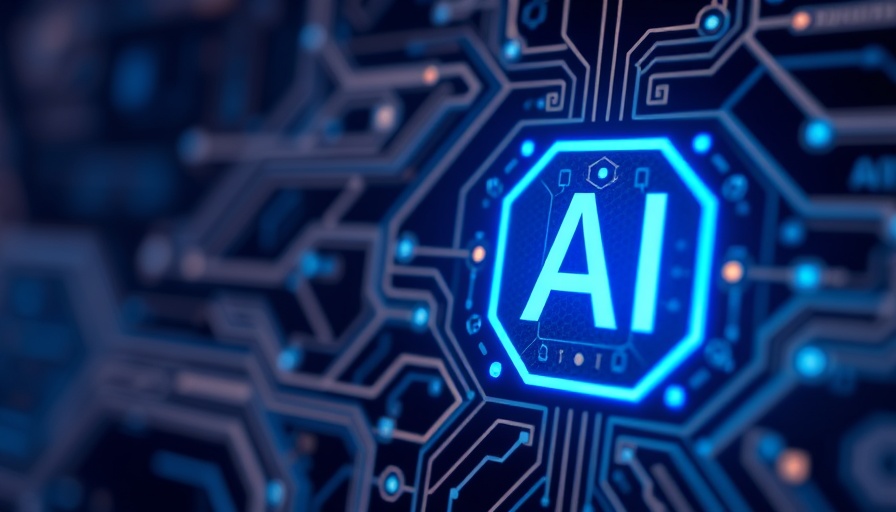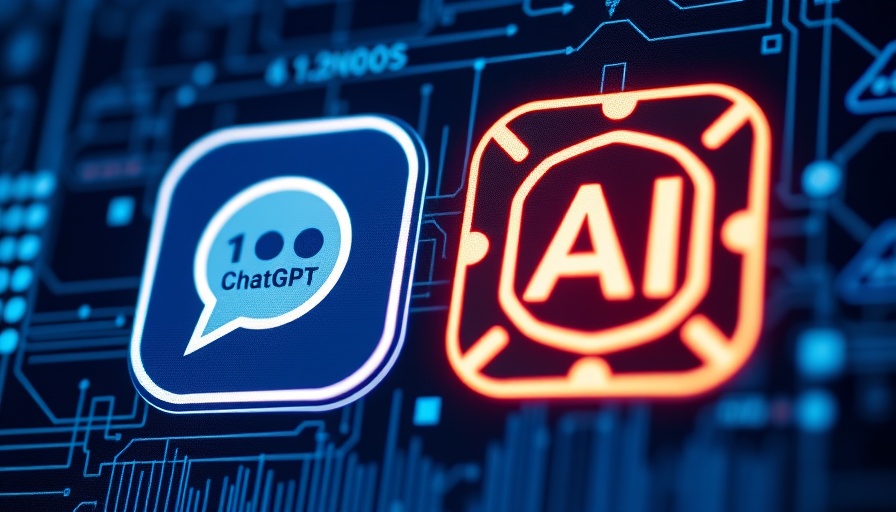
A New Reckoning: AI's Impact on Jobs
Artificial Intelligence (AI) stands at the forefront of a major technological revolution that promises to reshape our world. Yet, it brings with it a wave of uncertainty and anxiety about the future of work. As workers across various sectors grapple with the rise of automated systems and AI-driven processes, discussions surrounding job security are heating up. This conversation has sparked polarized opinions; while some tout the potential for increased efficiency and innovation, others fear a significant loss of employment opportunities.
The Double-Edged Sword of Automation
While AI technologies can automate routine and mundane tasks, many worry about the implications for the workforce. For instance, jobs in manufacturing, retail, and even some creative fields are increasingly vulnerable to disruption. Yet, it’s important to recognize that innovation historically has led to the creation of new types of jobs, albeit often requiring different skills. The shift from manual labor to digital competencies marks a crucial trend—how we prepare our workforce for these changes could dictate future success.
A Closer Look: Myths and Realities of AI in the Workplace
There’s a lot of misinformation swirling around AI and its role in the job market. A prevalent myth is that AI will outright eliminate jobs. In reality, studies indicate that while some positions may vanish, others will emerge, focusing on tasks that machines cannot handle, such as critical thinking, creativity, and personal interactions. For example, healthcare professionals are now using AI tools to streamline patient care, allowing them to spend more time on the human aspects of their jobs.
Re-Skilling: The Key to Thriving in an AI-Driven World
To ensure that AI enhances rather than threatens employment, investment in re-skilling initiatives is paramount. Workers across the board need access to education and training programs that focus on emerging technologies, data analysis, and even soft skills like emotional intelligence, which machines cannot replicate. Companies must take the lead here; by fostering an adaptable workforce, they position themselves to leverage AI technology effectively while maintaining employee morale and security.
Real-World Lessons: Successful Integration of AI
Looking at businesses that have successfully integrated AI shows an inclusive approach to this transition. For example, Google has implemented extensive employee training programs to upskill their workforce in AI-related tasks. Similarly, companies like IBM have invested in AI and analytics training, demonstrating a commitment to coexistence with automation rather than resistance.
Anticipating Future Challenges
Yet, the road ahead isn't without challenges. The lag in workforce adaptation can be daunting. Industries that don’t evolve their workforce risk falling behind, suffering from reduced productivity and increasing employee dissatisfaction. To remain competitive, companies must grapple not only with the technical transition but also with managing employee fears surrounding job displacement and the psychological impact of automation.
The Importance of Open Dialogue and Policy Development
To address concerns, there should be an ongoing dialogue between employees, employers, and policymakers. Collective efforts are needed to craft policies that protect workers while encouraging innovation. As we forge ahead, thoughtful regulations will help create a balanced ecosystem where human workers and AI can coexist. This includes considering safety nets for displaced workers and ensuring equitable access to training opportunities.
Conclusion: Embracing Change with Preparedness
The conversation surrounding AI and jobs is fraught with uncertainties but also ripe with opportunities. We are at a unique juncture where technology can empower rather than displace. As we navigate through these changes, fostering a culture of adaptability, learning, and open communication will be essential. Consider taking action today—whether that means advocating for workplace training programs, staying informed about AI developments, or even skilling up yourself. The future of work is a collaborative endeavor, and we can shape it together.
 Add Row
Add Row  Add
Add 




 Add Row
Add Row  Add
Add 

Write A Comment